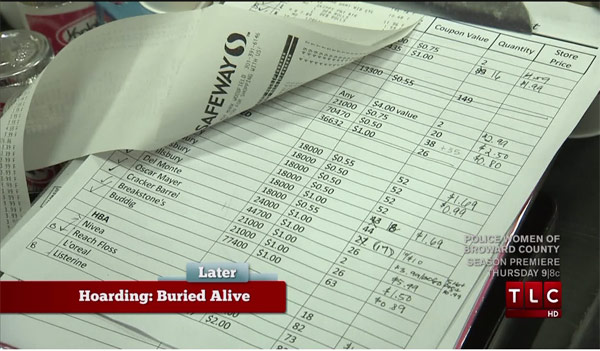I am staring a series of 10 posts called the “Couponing Commandments”. In each post you will find a couponing “guideline” to live by. If you follow the ten Coupon Commandments you will reach savings nirvana easily and peacefully! Click READ MORE to get started.
COUPON COMMANDMENT #1:
“Thou Shalt NOT Coupon Fraudulently”
 |
| Photo credit: The Consumer Queen |
You may or may not have even heard of coupon fraud before. It really does happen and unfortunately it is a really big problem for people who coupon legitimately. Because of fraudulent coupon use, stores will often restrict their coupon policy or stop taking coupons all together. This is obviously NOT what we want to happen.
So how do you help stop coupon fraud? The only person you can control is YOU and so I want to take this time to explain what constitutes fraud, so that you will know how to avoid it.
It is possible to use a coupon fraudulently on accident when you are first starting out. Don’t sweat it! As long as it’s not in mass quantities on a recurring basis, no one is going to show up at your house with a lynch mob.
Basically coupon fraud is knowingly using a coupon in a manner other than intended. For example, if a coupon specifically says “not valid on trial size” and your cashier isn’t paying attention and you use it, that is fraud. If you make photocopies of coupons to use multiples of online printable coupons, that is fraud. If you steal the inserts from 10 papers at the gas station but only buy one…well it’s not fraud but it is shoplifting!
Why do these cases constitute fraud? Well in the trial size and the photo copy example, the store you used those coupons at will not be reimbursed for the coupon by the manufacturer, and so they are out that money. Since a correctly used coupon will be reimbursed to the store by the manufacturer for the full face value plus a handling charge, the store normally does not lose any money by accepting coupons. If they start having a problem with fraudulent coupons…they may stop allowing customers to use them!
Altering coupons is another method of fraud. It’s harder to do, but people have changed expiration dates, or photos on computers or even created fake coupons. Be sure you know you are getting your coupons from a legitimate source before you download and print them!
Barcode decoding is another less known method of fraud. Every coupon has a barcode which has encrypted in it information that tells the cash register what items qualify for which discount. Some people have found a way to figure out what those digits on the barcode stand for, and use that knowledge to apply coupons to items not valid for said coupon. If the cashier doesn’t catch it, they get the coupon discount on an item for which it was not intended. This practice hurts not only the store, but again jeopardizes fellow couponers from being allowed to use coupons.
 |
| A fraudulent couponer decodes coupons to use them on items other than what is intended, getting deals that are not valid. |
This is why sometimes an uninformed cashier may cop an attitude when you pull out coupons. Some cashiers have been burned in the past by accepting fraudulent coupons and so an ignorant cashier may treat you like you are trying to scam them. This has happened to me! I even had a cashier tell the head cashier as well as another customer that I was scamming them because I had so many coupons that were more than the value of the item. I of course had followed all the rules on the coupon and had nothing to worry about. I finished my transaction, walked out the door, and never returned to that particular store or location again.
 |
| *Not the actual cashier referenced |
Don’t be discouraged by an ignorant cashier! There is nothing wrong with using coupons, as long as you follow the “letter of the law” so to speak. Most stores welcome coupons graciously because it allows customers to spend more at their store than they normally would. They even get reimbursed for them, but the important thing is that you don’t use them fraudulently or else the store won’t get reimbursed. We want to maintain a classy, well-educated image of the smart, savvy couponer.

